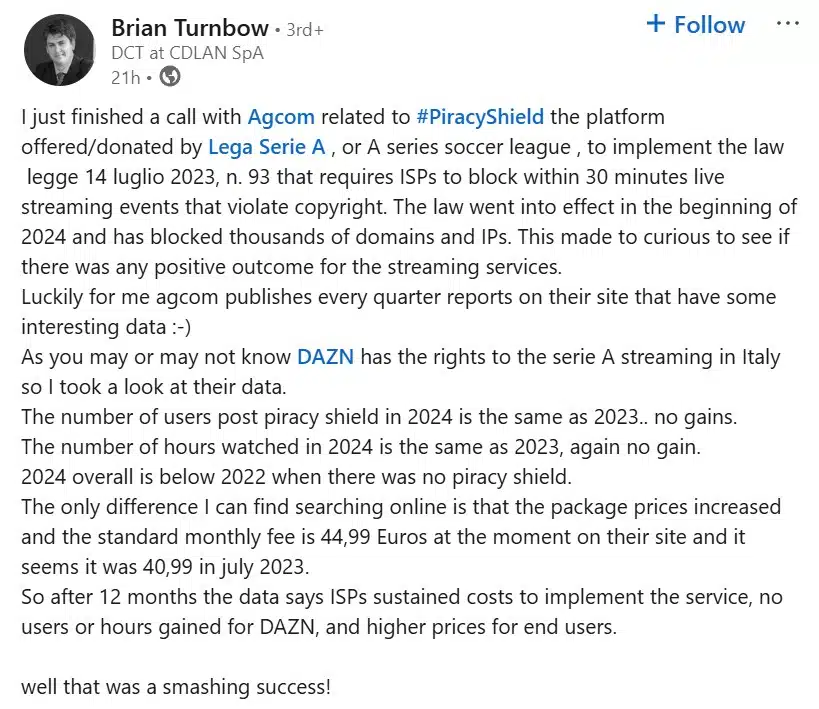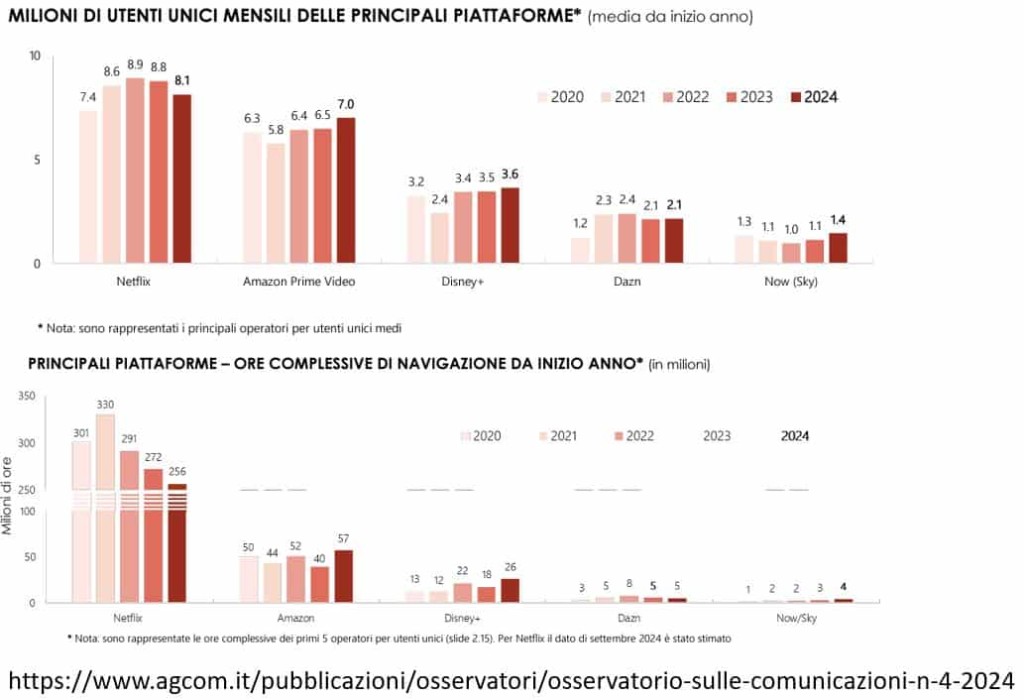
Italy’s Anti-Piracy Efforts Under Scrutiny as ‘Piracy Shield’ Fails to Boost Legal Streaming
- The effectiveness of Italy’s anti-piracy program is questioned, as it only managed to block a considerable amount of unauthorized broadcasts.
- Rightsholders had hoped the IP blocking initiative would turn users from pirate streams to legal services.
- Critics also argue that overblocking and the lack of measurable benefits for authorized services are overlooked.
Nearly a year after Italy implemented its ambitious ‘Piracy Shield’ program to combat illegal streaming, data from telecoms regulator AGCOM reveals that the program successfully blocked thousands of unauthorized broadcasts but did not increase viewership for legal streaming platforms.
Over the last year, the program has disrupted a significant number of illegal streams. Despite some initial missteps, including instances of overblocking legitimate content, authorities have touted the program as a major success.
Recently, calls have emerged to expand the program to include other forms of media, such as live TV and movie premieres. Discussions also focus on employing broader technical measures against piracy, such as targeting VPNs and DNS services to strengthen its effectiveness.
AGCOM has worked with various stakeholders to refine and enhance the program. Among these stakeholders is Brian Turnbow of CDLAN, a technology company involved in cloud and hosting solutions.
While AGCOM maintains that blocking illegal streams inherently reduces piracy, Turnbow’s findings challenge this assumption by shifting the focus to the program’s impact on legitimate services.
He examined whether the crackdown on piracy translated to an increase in users or hours watched on platforms like DAZN, a key player in Serie A broadcasting, and based on AGCOM’s quarterly reports, his analysis found no significant improvements.
DAZN’s subscription numbers and viewing hours remained stagnant throughout 2024, showing no growth compared to the previous year.
Furthermore, the figures for 2024 were lower than those reported in 2022, prior to the implementation of Piracy Shield. While blocking may have disrupted piracy-related traffic, it failed to convert illegal viewers into paying customers.
One noticeable change, unrelated to Piracy Shield’s impact, was a price hike for DAZN subscriptions, which increased from €40.99 to €44.99. This change, coupled with sustained implementation costs for ISPs, raises concerns about the broader economic implications of the program.
Proponents argue that blocking reduces piracy and protects content creators, while critics highlight its limited impact on legal streaming platforms and the financial burden placed on ISPs and consumers.
Additional concerns focus on transparency and accountability. Critics question whether the program’s successes are overstated while its shortcomings—such as overblocking and the lack of measurable benefits for authorized services—are overlooked.
Despite the heated discussions, Piracy Shield’s role in Italy’s anti-piracy strategy is set to grow. Policymakers and stakeholders are exploring ways to refine the program and extend its scope.
However, the lack of demonstrable benefits for legal services highlights the need for a more nuanced approach. Many experts suggest combining enforcement efforts with strategies to improve the accessibility and affordability of legal streaming platforms.
Addressing the root causes of piracy—such as high subscription costs, limited content availability, and poor user experiences—could complement blocking measures, making them more effective in driving users toward legitimate alternatives.
Piracy Shield was introduced in February 2023 to prevent illegal streams of live sports broadcasts, particularly Serie A football matches. The AGCOM-led initiative blocks IP addresses and domain names associated with piracy.











